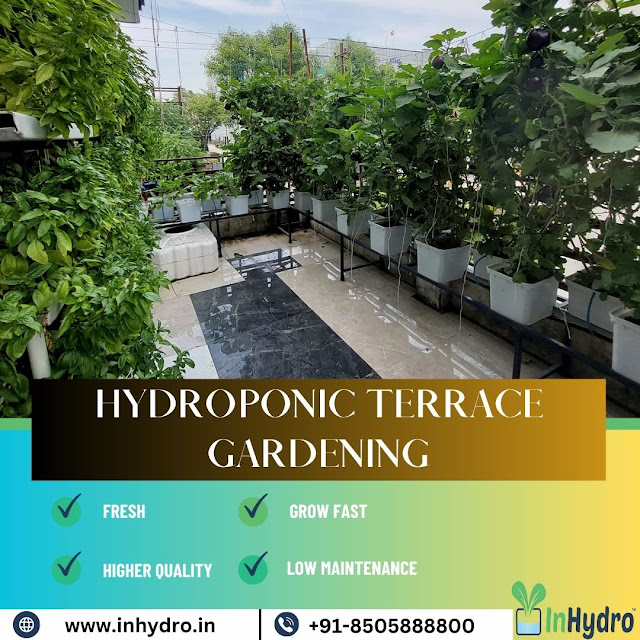Newest Farming Technology: Hydroponic Commercial Farm Setup and Training
What is hydroponics?
Hydroponics is a form of soil-less farming that utilizes nutrient solutions to feed plants instead of soil. This method has been used for centuries and is a great way to grow food in various climates and spaces. Hydroponic farms can range from simple hydroponic rooftop farms to complex commercial hydroponics farms that require expert setup and training.
In hydroponics, plants are supported in a soilless medium such as clay pellets, rock wool, or perlite and are fed with nutrient solutions that contain all the necessary minerals and nutrients that the plant needs to thrive. The nutrient solutions are either purchased or made at home, depending on the preference of the farmer.
Hydroponic systems vary in size, complexity, and location. Some hydroponic systems are set up indoors, while others are located outdoors. Indoor systems are typically smaller, while outdoor systems can be more complex and require more resources. Regardless of the system size, the basic components of a hydroponic system remain the same: a tank to store the nutrient solution, pumps to distribute the nutrient solution, a reservoir to collect runoff, growing media such as clay pellets, rock wool, or perlite, and a light source.
The advantages of hydroponic farming
Hydroponic farming is an innovative agricultural technique that has become increasingly popular in the 21st century. Hydroponic farming has numerous advantages, making it an ideal choice for many commercial farmers.
The main advantage of hydroponic farming is the high yields it produces. Without the use of soil, the roots of plants have a more efficient access to nutrients and can better absorb water. This helps to increase crop yields and reduce water consumption. Furthermore, due to the lack of soil, there is no need for tilling or weeding, leading to increased cost-savings.
The setup for a hydroponic farm is also relatively straightforward. A Hydroponic Commercial Farm Setup can easily be installed on rooftops and other compact spaces, allowing for more efficient land usage. This is especially beneficial for urban farming operations and reduces their costs even further. Additionally, hydroponic farms tend to use fewer resources than traditional soil-based farms.
Hydroponic farming is also highly customizable, and with the right Hydroponic Farm Setup, you can create a system that works best for your crops and conditions. As a result, you can tailor the nutrient and water content to best suit your plants' needs and ensure the highest yields possible.
Overall, hydroponic farming offers numerous advantages over traditional soil-based farming. With a Hydroponic Rooftop Farm Setup, you can benefit from reduced costs, improved crop yields, and more efficient land usage. With proper training and maintenance, a commercial hydroponics farm can be a lucrative and sustainable venture.
The disadvantages of hydroponic farming
Hydroponic farming has some drawbacks, which can make it more difficult and expensive to set up and maintain. It requires more intensive management than traditional farming methods, as the environment for plants must be carefully monitored and controlled. Additionally, hydroponic farms require a lot of energy in order to operate and maintain temperature and humidity levels, meaning that power costs can become quite expensive.
Furthermore, hydroponic farms take up much more space than traditional farming methods, making them unsuitable for those with limited space such as urban farmers or those looking to set up a hydroponic rooftop farm. Setting up a commercial hydroponic farm is also significantly more expensive than traditional farming methods due to the cost of necessary equipment and supplies.
Finally, hydroponic farms are vulnerable to pests and diseases which may not be controllable with traditional methods of pest and disease control. This could lead to crop loss or reduced yields if not handled correctly. In order to prevent these problems from occurring, careful monitoring of the hydroponic farm setup is required, and proper training for commercial hydroponic farmers is essential.
Setting up a commercial hydroponic farm
Creating a commercial hydroponic farm is a great way to expand your agricultural operations and take advantage of the many benefits that hydroponics has to offer. With the right knowledge, resources, and tools, you can easily set up and manage a successful hydroponic farm.
The first step in setting up a commercial hydroponic farm is to decide what type of hydroponic system you would like to use. Different types of hydroponic systems include deep water culture (DWC), nutrient film technique (NFT), ebb and flow, aeroponics, and wicking. Each system has different advantages and disadvantages, so it is important to do your research and determine which system is best for your farm setup.
Once you have decided on the type of hydroponic system you would like to use, you will need to source the necessary supplies. This includes purchasing growing mediums such as clay pellets, Rockwool, or coco coir, buying nutrient solutions, and purchasing the necessary equipment such as air pumps, water pumps, air stones, water sensors, etc. You may also need to construct a suitable space for your hydroponic farm, such as a greenhouse or a hydroponic rooftop farm.
Finally, you may need to invest in additional training or support to help you get your hydroponic farm up and running. Many companies offer specialized classes in hydroponic farming that provide information on setting up, managing, and maintaining a hydroponic commercial farm setup. There are also a number of online resources available which provide information and advice on hydroponic farming.
With the right knowledge and resources, you can easily set up a successful commercial hydroponics farm. Once everything is in place, you can begin reaping the rewards of this 21st-century farming technology.
Training for commercial hydroponic farmers
2. Join a Professional Association
3. Use the Latest Technology
4. Stay Up to Date on Best Practices
5. Attend Trade Shows and Conferences





Comments
Post a Comment